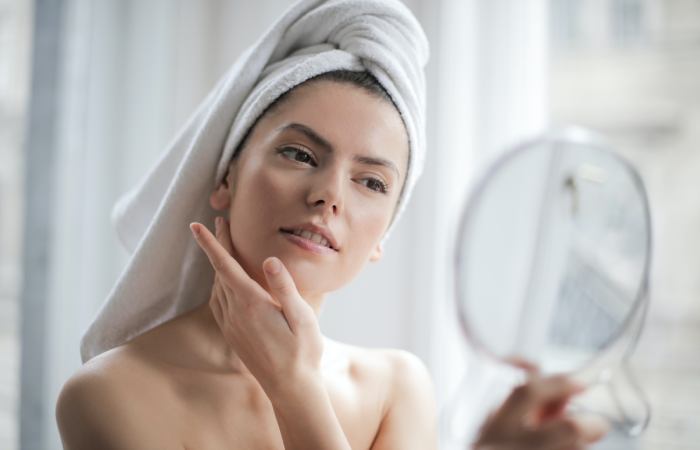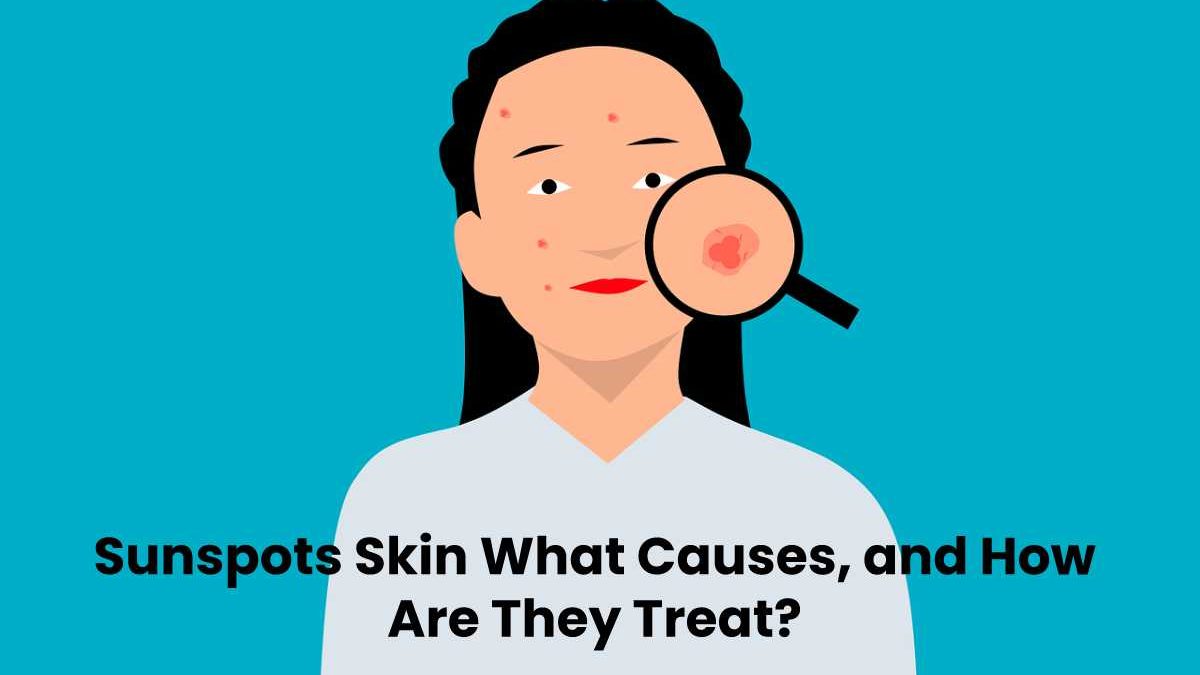Table of Contents
Introduction
Sunspots Skin are harmful, flat brown spots that develop on areas of skin frequently exposed to the sun. They might also be referred to as age spots or liver spots, though they don’t have anything to do with the Liver. While they commonly occur in people over 50, they can also build up in younger persons who spend much time in the sun with no SPF.
Source of Sunspots
According to the Mayo Clinic, sunspots result from overactivity in pigment cells. Exposure to ultraviolet (UV) illumination from the sun’s rays or tanning beds accelerates the production of melanin, a pigment responsible for your skin colour. After years of contact, melanin may clump together or exist shaped in higher concentrations, causing sunspots. These skin imperfections are further likely to develop in persons with glow skin.
Sunspot Treatments

While there’s no medicinal need to remove sunspots, many people wish to decrease their appearance for cosmetic reasons. Here are a few of the mainly popular treatments available.
Facial Peels – Sunspots
Chemical peels deliver a unique chemical formula to the skin to create controlled wounds under a physician’s care. It prompts the surface skin to peel off gently, allowing a new layer of healthy skin to replace it. While you may knowledge temporary symptoms such as a burning feeling, the trade-off drastically reduces sunspots. Many patients also experience reduced wrinkles, fine lines, acne scarring, and other skin imperfections.
Laser Treatment – Sunspots
Skin laser treatments use specific wavelengths to target particular issues strategically. For instance, New Surg laser treatments can mark areas of sun damage, such as sunspots, scars, and pigmented moles. The cure can remain applied to the face, neck, chest, and upper body. The Fraxel Dual laser also prevents unwanted sunspots and advances overall skin tone by resurfacing the skin and inspiring collagen growth.
Microdermabrasion – Sunspots
A physical way of skin resurfacing, microdermabrasion is an invasive treatment in which crystals are delivered to the skin at high speed and then immediately suctioned up using a unique device. A series of treatments canister to refine the skin’s feel and increase elastin production, reducing sunspots’ appearance.
Dermaplaning – Sunspots
Dermaplaning is a gentle exfoliation in which the top layers of dead skin are removed, including those damaged by the sun. In this procedure, a derma planing tool delivers precision scrapes at 45-degree angles to remove the uppermost layer. It’s also an excellent facial action for summer, providing smoother, more evenly-toned skin.
If you’re seeking action for your sunspots or have another cosmetic concern, allow our team of experienced skin care professionals to help.
Sunspot Risks
Sunspots don’t require any treatment; actual sunspots are noncancerous and cannot become cancerous. They can remove for cosmetic reasons, but leaving them doesn’t pose any risks to your health.
Though treatments are generally safe, some may cause fleeting worry and redness. Talk to your doctor about the likely risks linked with each treatment.
Sunspot Risks
Sunspots are harmless and don’t pose any risks to your health. They don’t need to treat, and your doctor can usually tell the difference between a sunspot and something more serious, like skin cancer, just by looking at it.
The treatments for sunspots are generally safe, but as with any medical treatment or procedure, there is always some risk. Always speak to the doctor before using any home treatments.
A board-certified dermatologist should perform professional procedures to minimize risk and ensure the best results.
Sunspots – Are age Spots Dangerous?
Actual age acne doesn’t lead to the dangerous symptom. Because age spots can look similar to certain types of skin cancer, it’s essential to see a dermatologist for a diagnosis. See a dermatologist immediately if you have age spots that darken or change.
When Should I See my Healthcare Provider?
Program an appointment with your healthcare provider if you contain a liver spot that is:
- Bleeding.
- Changing in colour, darkening or turning black.
- Developing an irregular border.
- Growing larger.
- A note from Cleveland Clinic
Also, Liver spots flat, dark patches of skin. Your dermatologist can advise creams, lotions, gels or in-office procedures to lighten skin. Skin lightening treatments are effective but may take a few months to see results. You can minimize the chances that age spots will return after treatment by protecting your skin from UV light.
Conclusion
Most sunspots fade somewhat over time but will typically not disappear completely because the skin remains permanently damaged. There are, however, several treatments to diminish the appearance of sunspots. Bleaching creams and acid peels can make the appearance of sunspot less obvious.

